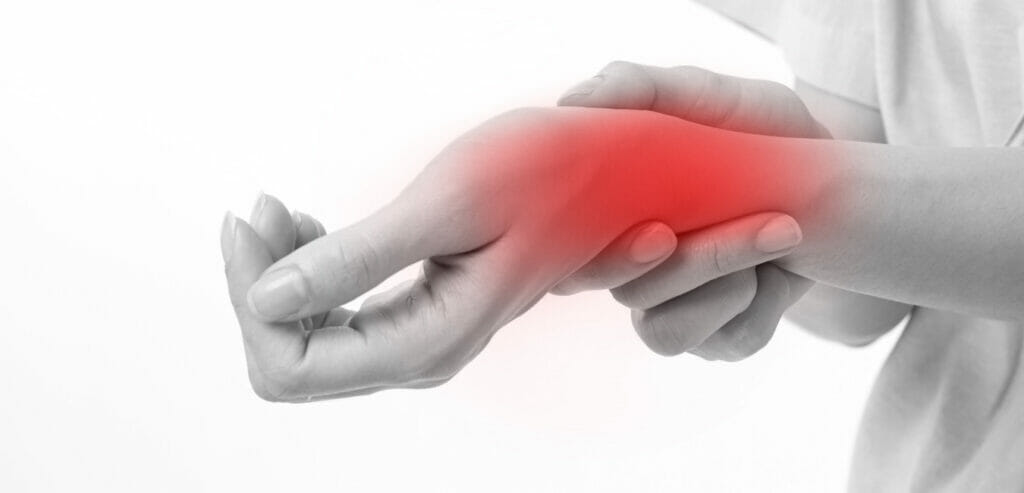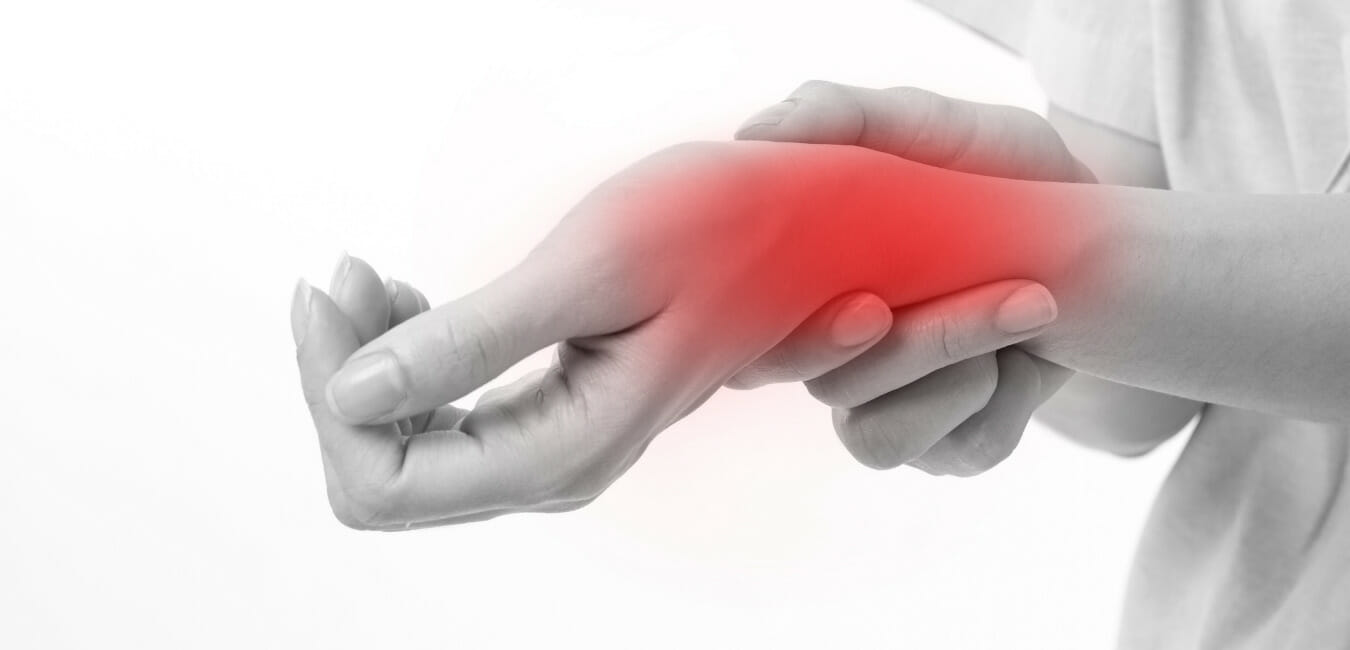There are over 100 different kinds of arthritis and related conditions that impact the body’s joints. Depending on the type of arthritis you have, you might experience pain, stiffness, swelling, redness, and decreased range of motion.
If you are experiencing persistent joint pain or inflammation, our doctors at St. Paul Rheumatology can help you diagnose and treat your symptoms. This article will help you understand more about some of the most common types of arthritis so you can have an open and informed conversation with one of our doctors about your symptoms.
Osteoarthritis (OA)
Osteoarthritis (OA) is the most common type of arthritis. The cartilage in your joints breaks down, causing your bones to rub together. Your joints may become inflamed, which can lead to pain, bone injury, and bone spurs.
Common symptoms include joint soreness, morning stiffness, and increasing disability. This type of arthritis most commonly affects joints in the hands, knees, hips, and spine. OA symptoms can usually be managed, but damage to joints cannot be reversed.
OA’s general risk factors include advancing age, obesity, joint injuries, bone deformities, and more. Women are also at a greater risk of developing it than men.
Rheumatoid Arthritis (RA)
Rheumatoid Arthritis (RA) is an autoimmune disease. The body mistakenly attacks joint tissue, which causes joint pain. The pain will typically develop in the same joint on both sides of your body.
You may experience numbness, warmth, burning, and tingling in your hands and feet. You might also notice rheumatoid nodules under the skin near your joints. These are firm to the touch and consist of inflamed cells. Other symptoms may develop in your heart, lungs, eyes, or skin.
RA can set in at any age, but it most commonly begins in middle age. Obesity and smoking increase your risk of developing RA. Women are also more likely than men to develop the disease.

Spondyloarthropathies
Ankylosing spondylitis (try saying that five times fast) and other spondyloarthropathies are autoimmune diseases that attack the areas where tendons and ligaments attach to your bone.
You may experience pain and stiffness, especially in your lower back. Ankylosing spondylitis typically affects the spine and pelvis but can also be found in other areas of the body.
Ankylosing spondylitis is hereditary; most people who have the condition also have the HLA-B27 gene.
Gout
Gout occurs when urate crystals accumulate inside your joints. Gout is most likely to affect the joint at the base of your big toe.
Common gout symptoms include redness, swelling, and pain in your toes, ankles, knees, hands, and wrists.
You may be at a higher risk for gout if you have high uric acid levels in your blood. Your body naturally produces uric acid when it breaks down purines naturally found in your body. However, your diet can have a drastic impact on the amount of purines in your body. Purine-rich foods include red meat, anchovies, sardines, mussels, tuna, beer, and drinks that contain fructose.
What Should You Do if You Think You Have Arthritis?
Catching your arthritis early means you can start treatment and manage your symptoms sooner. If you think you might have arthritis, schedule an appointment with St. Paul Rheumatology today. https://stpaulrheumatology.com/contact-us/
References
Case-Lo, C. (2018, December 11). Types of Arthritis: 5 Common Types and More. Healthline. https://www.healthline.com/health/arthritis-types#osteoarthritis
Mayo Foundation for Medical Education and Research. (2019, July 19). Arthritis. Mayo Clinic. https://www.mayoclinic.org/diseases-conditions/arthritis/symptoms-causes/syc-20350772.
Mayo Foundation for Medical Education and Research. (2021, May 18). Rheumatoid Arthritis. Mayo Clinic. https://www.mayoclinic.org/diseases-conditions/rheumatoid-arthritis/symptoms-causes/syc-20353648
Mayo Foundation for Medical Education and Research. (2021, March 6). Gout. Mayo Clinic. https://www.mayoclinic.org/diseases-conditions/gout/symptoms-causes/syc-20372897
